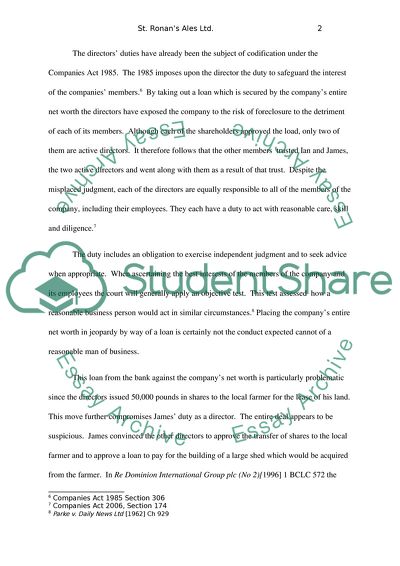Cite this document
(Business and Corporate Law: St. Ronans Ales Ltd Case Study, n.d.)
Business and Corporate Law: St. Ronans Ales Ltd Case Study. https://studentshare.org/law/1718117-business-and-corporate-law
Business and Corporate Law: St. Ronans Ales Ltd Case Study. https://studentshare.org/law/1718117-business-and-corporate-law
(Business and Corporate Law: St. Ronans Ales Ltd Case Study)
Business and Corporate Law: St. Ronans Ales Ltd Case Study. https://studentshare.org/law/1718117-business-and-corporate-law.
Business and Corporate Law: St. Ronans Ales Ltd Case Study. https://studentshare.org/law/1718117-business-and-corporate-law.
“Business and Corporate Law: St. Ronans Ales Ltd Case Study”. https://studentshare.org/law/1718117-business-and-corporate-law.


